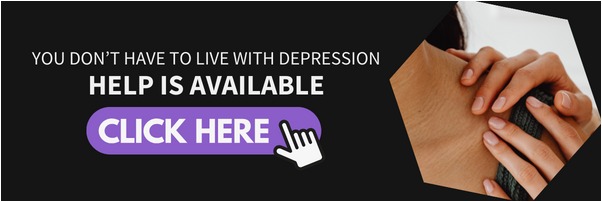Have you ever noticed someone who just won’t ask for help, no matter what? This could be a sign of hyper-independence.
You might think, “What’s wrong with being independent?” Well, hyper-independence is more than just self-reliance; it’s often a response to past trauma. People exhibiting hyper-independence tend to mistrust others, shy away from relationships, and refuse to delegate tasks.
This behavior stems from a desire to avoid vulnerability, thinking it could shield them from getting hurt again. Recognizing these signs is critical because it’s not just about being strong—it’s about healing and finding a balance to maintain mental well-being.
Defining Hyper-Independence
Have you ever felt the need to handle everything by yourself? Hyper-independence might be the term you’re looking for. This behavior goes beyond general self-reliance, encompassing an unwillingness to seek help, even when it’s really needed. It’s like putting on an emotional armor to keep people at arm’s length. But why do some people exhibit these behaviors? Let’s dig deeper into the psychological roots of hyper-independence.
The Link Between Trauma and Hyper-Independence
Past experiences, especially traumatic ones, play a huge role in hyper-independence. Trauma can alter how you perceive trust and vulnerability. Imagine a time when trusting someone led to hurt or disappointment. This might shape an intense drive to never depend on anyone again.
People who have undergone trauma:
- Often feel unsafe relying on others.
- Develop an intense need to prove themselves.
- May equate vulnerability with weakness.
These behaviors emerge as defense mechanisms. They tell themselves, “If I don’t rely on anyone, I won’t get hurt.” Trauma forces the brain to adapt for protection. However, this adaptation isn’t always healthy.
Key Signs of Hyper-Independence from Trauma
- Mistrust in others: Trusting people might feel scary.
- Perfectionism: You strive for flawlessness to hide vulnerabilities.
- Avoiding help: Even in dire situations, you refuse assistance.
- Limited close relationships: Keeping emotional distance becomes a norm.
You might notice these signs in your behavior or others’. It’s important to recognize them, not as flaws, but as responses shaped by past experiences.
Just like a scar forms over a wound, hyper-independence forms over past pain. It’s a reminder of where you’ve been and how you’ve coped. Understanding this can be the first step towards finding a balance.
Signs of Hyper-Independence
Hyper-independence often stems from deep-rooted experiences or beliefs. It’s more than self-sufficiency; it’s a way of coping that can impact personal and professional relationships. Let’s unbox some signs that might indicate hyper-independence.
Mistrust in Others
When someone doesn’t trust others, it becomes tough to rely on them. Think about a friend who never shares their struggles. While they might seem strong, this mistrust is a red flag. Constantly doubting people’s intentions can lead them to do everything alone, thinking no one genuinely wants to help.
Refusal to Ask for Help
Ever known someone who’d rather struggle than ask for help? Hyper-independents often find it hard to seek assistance, even when they desperately need it. It’s like trying to carry a load that’s too heavy but being too proud or fearful to ask for a hand. They think asking for help shows weakness, so they push themselves, sometimes to the breaking point.
Perfectionism
Hyper-independents often strive for perfection. They want everything done their way, in their time. This quest for flawlessness is tied to a need for control. Imagine trying to bake a cake and insisting on doing every single step yourself, even if others offer to lighten the load. It’s stressful and unnecessary, but they believe it’s the only way to ensure everything’s “perfect.”
Isolation and Limited Relationships
It’s tough to form close bonds when you believe you have to handle everything alone. Hyper-independence can lead to social isolation. They might avoid gatherings or intimate conversations because they’re so used to not relying on anyone. Over time, this can result in a very lonely existence with few deep relationships.
Avoidance of Dependence
Lastly, hyper-independents shy away from situations that require any form of dependence. They might avoid team projects at work or shun group activities. For them, it’s safer to be the lone wolf than risk being let down by others.
Hyper-independence can create a tough outer shell that isolates a person from genuine connections and help. These signs are reminders that while independence is valuable, extreme self-reliance can be a barrier to deeper, more fulfilling relationships. Understanding these signs is the first step to addressing hyper-independence and seeking balance.
Effects of Hyper-Independence on Mental Health
Living a hyper-independent lifestyle might sound strong and admirable but comes with some heavy emotional tolls. When people try to do everything alone, their mental health often suffers. This section discusses how hyper-independence can impact emotional well-being.
Feelings of Shame and Failure
When hyper-independent individuals need help, they often experience intense feelings of shame and failure. In a world that constantly highlights self-sufficiency, asking for support can feel like admitting defeat.
- Guilt and Self-Blame: They may question their worth and capabilities, wondering if they’re not good enough to handle their issues alone. This constant self-blame can lead to a downward spiral of negative emotions.
- Isolation: Their reluctance to seek help can build walls around them, making them feel isolated and misunderstood. Isolation breeds more negative thoughts and loneliness, creating a cycle that’s hard to break.
Imagine trying to balance a stack of books on your head. It might be possible at first, but add more books, and eventually, it’ll all come crashing down. This is how it feels to shoulder all responsibilities without seeking help. Just as anyone would struggle with the books, it’s normal to struggle with life’s challenges without support.
Burnout and Exhaustion
Constant self-reliance can lead to physical and mental burnout. You might think you can handle it all, but the body and mind can only take so much.
- Physical Exhaustion: Running on empty is like driving a car with no fuel. Our bodies need rest and downtime. Ignoring these needs can lead to chronic fatigue and a weakened immune system.
- Mental Burnout: The mental energy required to handle everything on your own is exhausting. This can lead to anxiety, depression, and an overall sense of hopelessness.
To put it simply, it’s like trying to run a marathon without training properly. Sure, you might start strong, but you’ll likely face severe burnout before reaching the finish line. The same goes for hyper-independence. Without giving yourself proper breaks and relying on others when needed, burnout is inevitable.
Overcoming Hyper-Independence
Hyper-independence is when someone feels like they have to do everything by themselves. They believe asking for help means they are weak. If you’re dealing with this, the good news is, you can change. Here’s how to start overcoming hyper-independence.
Building Trust: Suggest methods for developing trust in relationships
Building trust in relationships is key. It can make you feel more comfortable asking for and accepting help. Here’s how to develop trust:
- Be Honest and Open: Share your thoughts and feelings with those close to you. It’s scary but necessary.
- Consistent Actions: Follow through on promises and be dependable.
- Listen Actively: Really pay attention when someone is talking to you.
- Small Steps: Start with small acts of trust. It’s like watering a plant – little by little, it grows.
- Show Empathy: Understand and validate the feelings of others.
Building trust won’t happen overnight, but these steps can lay a solid foundation.
Learning to Ask for Help: Offer tips on how to gradually seek help from others
Asking for help can be daunting. But here are some tips to make it easier:
- Start Small: Ask for help with little things first. This could be as simple as asking someone to hand you an item.
- Be Clear and Specific: Don’t beat around the bush. Clearly state what you need.
- Remember, It’s Normal: Everybody needs help sometimes. Even superheroes rely on their teams.
- Say “Thank You”: Express gratitude when someone helps you. It builds goodwill and encourages them to help you again.
- Flip the Script: Think of asking for help as giving someone else the chance to feel valued and needed.
Gradually, asking for help will start to feel more natural.
Therapeutic Approaches: Discuss therapeutic options such as counseling or support groups
Therapy can be a game-changer for overcoming hyper-independence. Here are some effective therapeutic options:
- Individual Counseling: One-on-one sessions can help you explore the root causes of your hyper-independence.
- Group Therapy: Being in a room with others who understand what you’re going through can be incredibly validating.
- Cognitive Behavioral Therapy (CBT): This type of therapy helps you challenge and change unhelpful thoughts and behaviors.
- Support Groups: Joining a support group can provide a sense of community and shared experiences.
Therapy is more than just talking. It’s about gaining insights and practical tools to change your life for the better.
These strategies can help you move past the need to do everything alone. It’s a journey, but you don’t have to walk it by yourself.
Conclusion
Recognizing hyper-independence is essential for nurturing healthier relationships and personal well-being. It shapes how we connect with others and ourselves, often fostering mistrust and isolation. Understanding its signs allows for meaningful change.
Embrace the vulnerability. Strength rooted in connection thrives. Free yourself from the shackles of relentless self-reliance. Start today.
Share your experiences. Explore this with your circle. Open the conversation for those who might be struggling silently. Be the change in your relationships and witness the profound impact.








